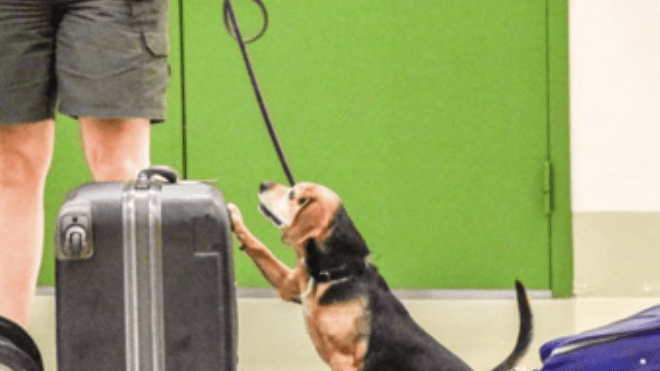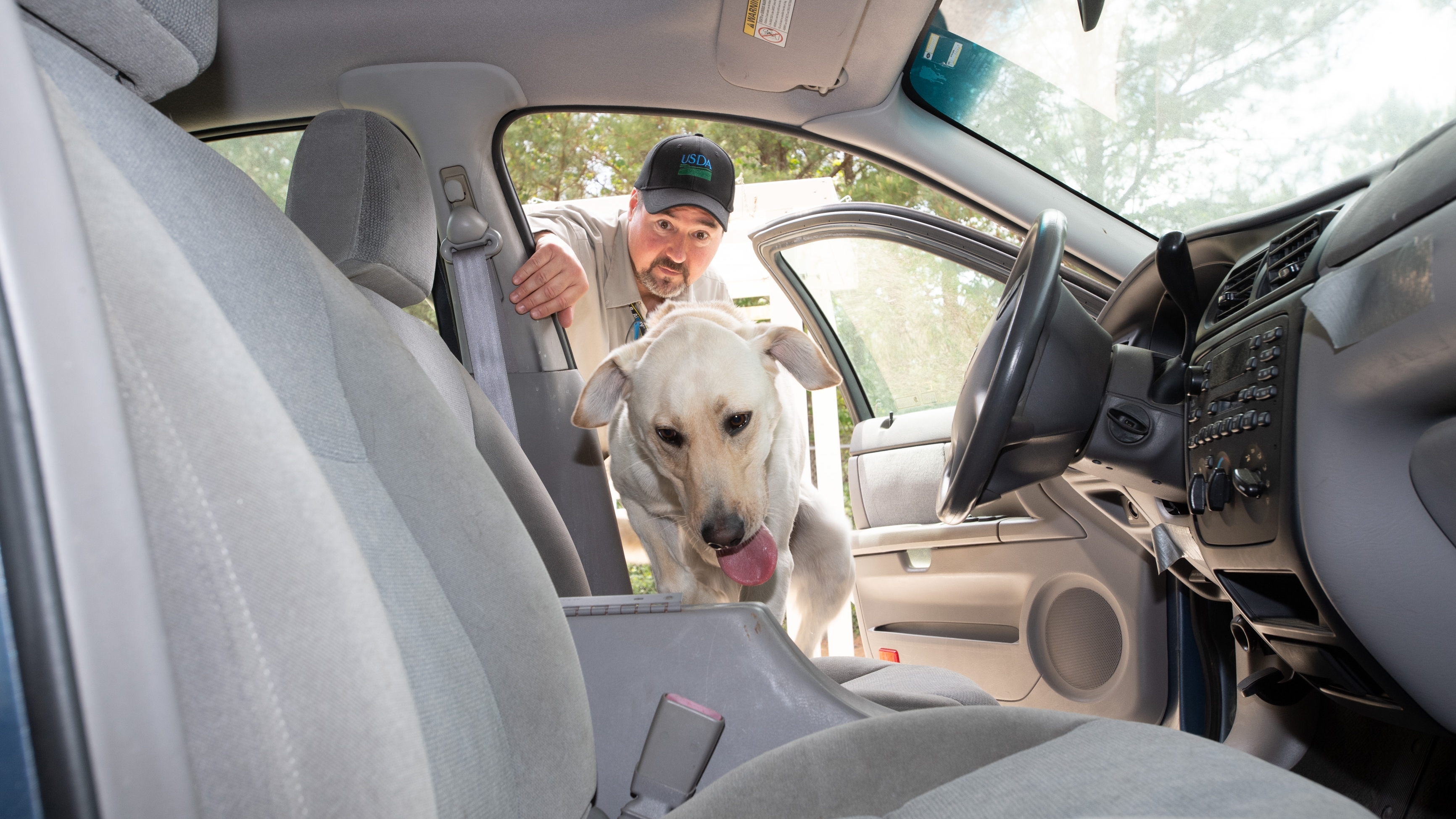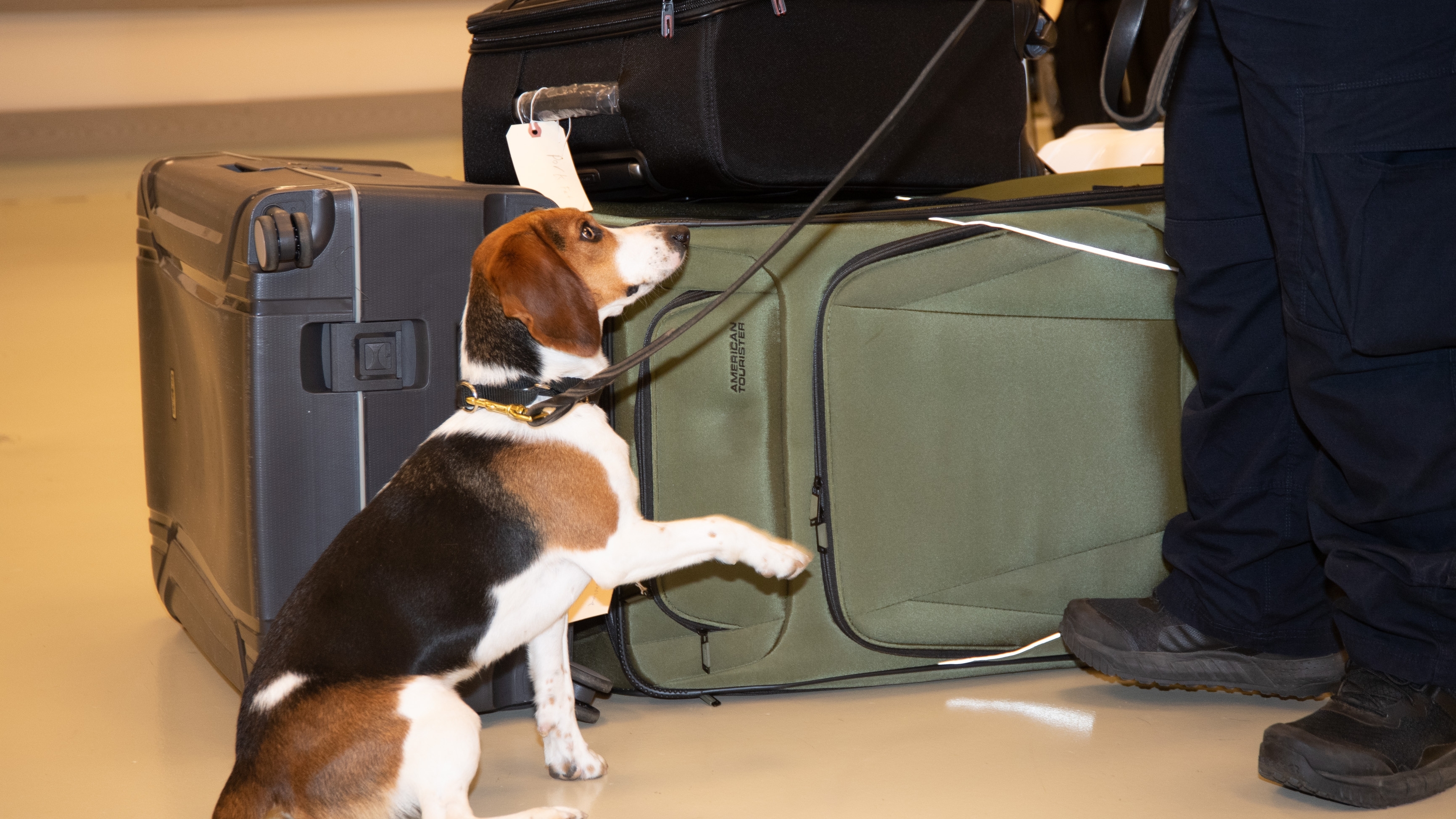Detector Dogs

The National Detector Dog Training Center trains specially selected dogs and their handlers to safeguard America’s agricultural and natural resources from harmful pests. These dog teams carry out a range of activities, from inspecting passenger baggage, cargo, and parcels at ports of entry to detecting certain invasive species in the environment. Together, they help protect our Nation's food crops, forests, farms, and environment.
APHIS’ Plant Protection and Quarantine program runs the Center, which started in 1984 with just one dog and one trainer. Today, the 17-acre compound includes 8 buildings and 100 kennels. The Center is located in Newnan, GA.
Training Agriculture’s Best Friend
Criteria
- Age: 1-3 years old
- Healthy
- Friendly
- Highly food-driven
Recruitment Locations
- Animal shelters
- Rescue groups
- Private owners
In our screening process, a veterinarian gives each dog a physical exam, and we test them in a real inspection environment to expose them to the sights, sounds, smells, surfaces, and equipment. If the dogs pass our screening process, they begin training.
On average, 75 percent of the dogs we train finish the program successfully. If a dog does not complete the training program, we make sure he or she is adopted to a good home.
The Center trains different breeds for different needs in the field.
- Beagles detect fruits, vegetables, and meats in baggage, mailed packages, and vehicles entering the United States.
- Jack Russell terriers stop brown treesnakes—which have caused the extinction of several bird species in Guam—from reaching Hawaii, the Mariana Islands, and Saipan.
- Labrador retrievers detect nutria, an invasive rodent that destroys wetlands on Maryland’s Eastern Shore.
Our training programs last up to 13 weeks and offer a chance for a detector dog and handler to bond and gain mutual confidence and trust.
Through daily training, dogs and their handlers develop a close relationship—to the point that the handler is aware of even slight changes in the dog’s behavior. Enrichment opportunities, such as play time, further ensure the detector dog’s well-being.
Where Detector Dogs Work

After graduating from the Center, our highly trained dogs and their handlers go to work for APHIS and partner agencies at airport terminals and warehouses, seaports, mail facilities, and in the field. Partners include:
- U.S. Customs and Border Protection
- State departments of agriculture
- County agricultural commissioner’s offices
- Foreign agriculture ministries
If you would like to request a detector dog, email us at usdacanineadoptions@usda.gov.
The Center offers dogs for adoption. These dogs either retired from service around 9 years old or did not meet our rigorous training requirements but would make wonderful pets. All adopted dogs are spayed or neutered and have current vaccinations. Reach out today to start the adoption process.
The Center accepts dogs from animal shelters, rescue groups, and private donations. Many of the dogs we bring into the program for training would have otherwise been euthanized. Contact us today to give a dog a second chance.



